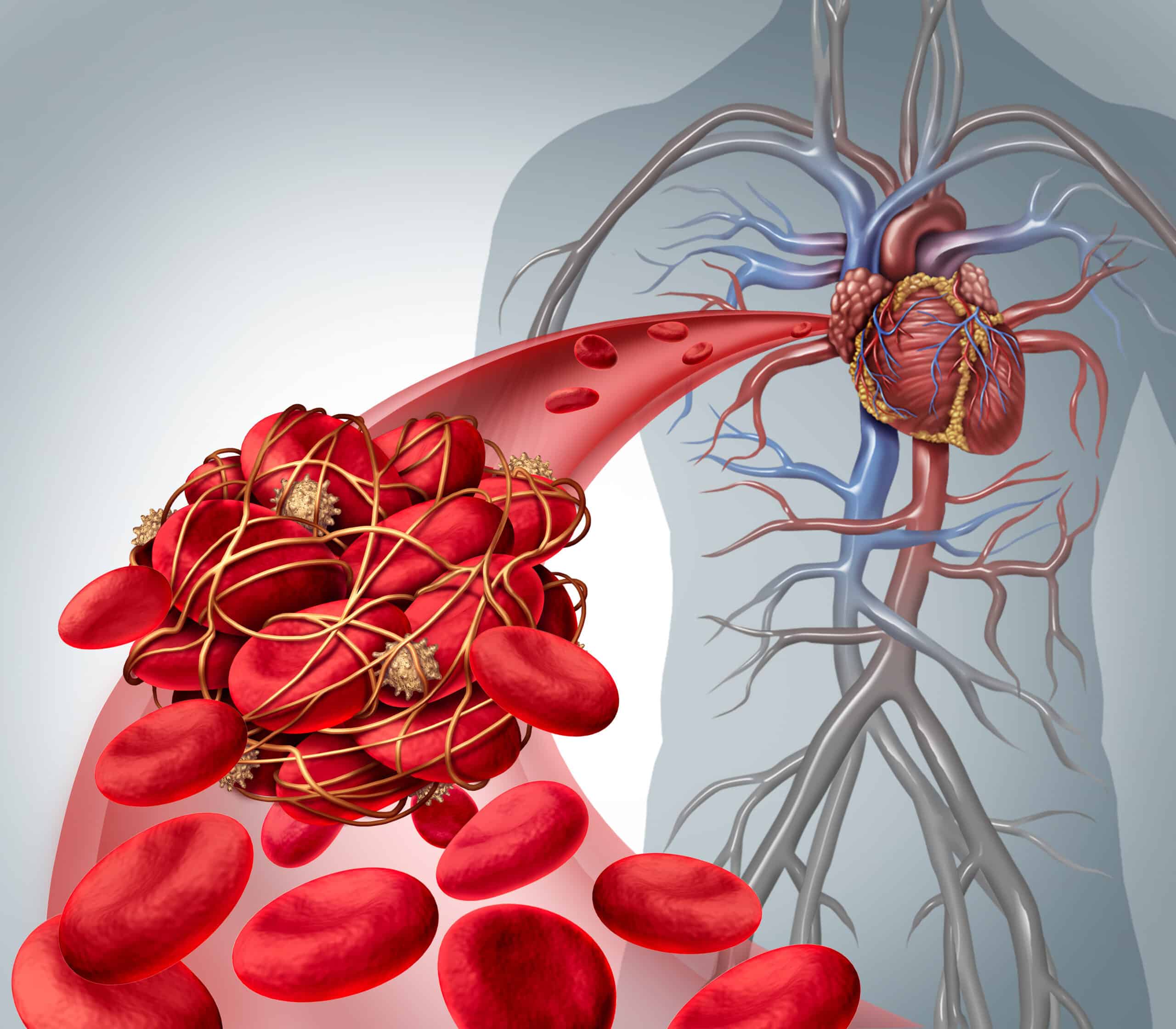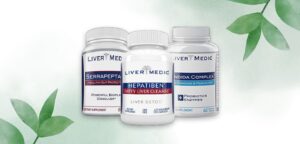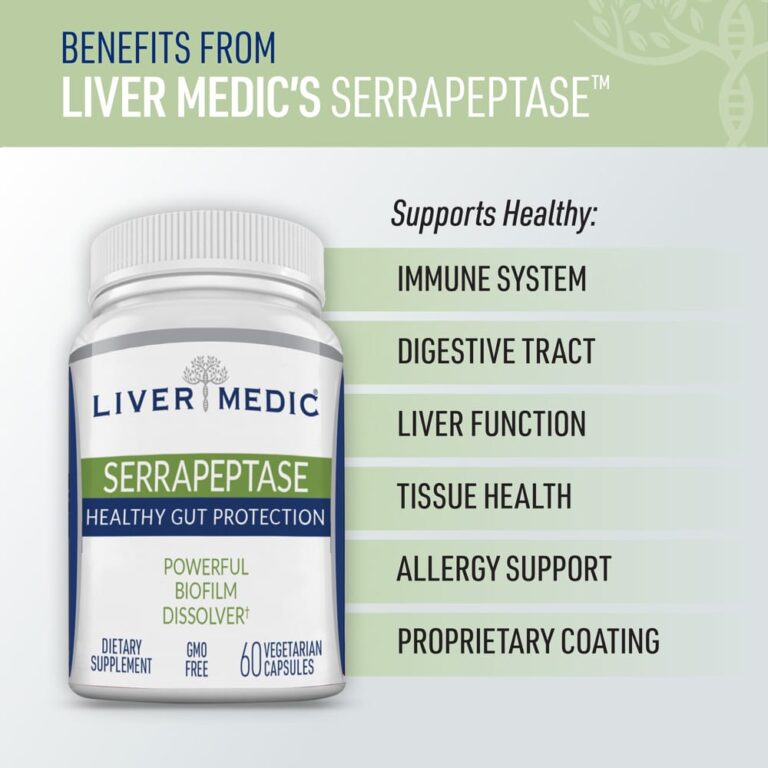
Thrombosis is a blockage of veins and or arteries due to blood clots. These obstructions can be severe and may lead to heart attack, stroke, or pulmonary embolism. This is commonly treated by the pharmaceutical industry with “blood thinners” often referred to as statin drugs. These statins are in actuality HMG CoA reductase inhibitors used to reduce cholesterol levels.
There are over 36 million Americans currently on statins drugs. The problem with this approach is there are very severe side-effects, which we will cover later. So, are there natural ways to support the reduction or heart disease and thrombosis that don’t have the side-effects statin drugs do? Yes, by using enzymes.
We are going to discuss the enzymes that target thrombosis and also pulmonary fibrosis. There are many different kinds of enzymes out there, but only two that do this function.
Natural Therapy For Thrombosis
This requires the use of enzymes with these two characteristics:
1. Fibrinolytic Activity
Supports the breakdown of FIBRIN.
2. Proteolytic Activity
Supports the breakdown of PROTEIN.
Fibrinolytic & Proteolytic Enzymes
Low Body Enzymatic Activity / Heart Disease Connection
Progressive physicians know this connection and prescribe proteolytic/fibrinolytic enzymes for patients at the first sign of heart condition or high blood pressure. The ability of enzymes like nattokinase and serrapeptase to break down cellular debris and artery plaque is well documented.
We recommend Serrapeptase because clinical studies show it is stronger than nattokinase in its proteolytic and fibrinolytic activity. Studies also show superior proficiency in breaking down both fibrin and protein. Fibrin is a very tough form of protein that is often a major component in blood clots. There are additional benefits of serrapeptase to the immune system and pain reduction in places like joints.
How These Enzymes Work on Blood Clots?
Enzymes like serrapeptase “lyse”, or cut the fibrin clots into smaller parts for clearing. These are then consumed by macrophages (another part of our debris clearing physiology) or filtered by our lymph system. This is exactly what pharmaceutical drugs attempt to replicate, unsuccessfully and with damaging side-effects.
The benefits of using Serrapeptase for blood clots and joint pain is that it doesn’t have the side-effects of statin drugs or aspirin.
Why Heart Disease & Thrombosis increase as we age
Researchers have found a correlation between aging and the reduction of our body’s ability to produce these enzymes naturally. This is seen as a major contributor to thrombosis and arteriosclerosis.
When our natural proteolytic enzymes are circulating in the blood they breakdown fibrin and blood clots found in veins and arteries. As we age the creation of these enzymes go down and therefore circulatory health problems increase.
Serrapeptase Clinical Proof Over Time
Studies going back to the 1960s first showed that serrapeptase was more effective at improving lockjaw than ibuprofen and corticosteroids. These were the most powerful anti-inflammatory drugs at the time. Additional testing showed incredible reductions in inflammation and pain in post dental surgery treatment.
Serrapeptase also fight bacterial infections and reduce biofilm. This promotes better gut health and supports recovery of eye, ear, nose and throat infections. Some doctors use Serrapeptase in place of antibiotics especially in staph (Staphylococcus aureus) infections.
Serrapeptase Supports:
- Resolving Blood Clots
- Chronic Inflammation
- Biofilm Reduction
- COPD (chronic obstructive pulmonary disease)
- Joint Pain
- Varicose Veins
- Chronic Respiratory Disease
Statin Drugs Dangers
Statin drugs are touted as a miracle against heart disease. They operate to clear the body of “harmful” triglycerides. They do this by inhibiting a critical coenzyme controlling the formation of cholesterol. Much of cholesterol’s critical role in the body is in the creation of hormones, especially important are sex hormones. Research has also proved that cholesterol acts as an antioxidant and protects cell membranes.
These activities are severely hampered by statin drugs.
Here is a list of common statins below:
Common Statin Drugs:
- Atorvastatin
- Fluvastatin
- Lovastatin (Mevacor® or Altoprev™)
- Pitavastatin (Livalo® or Zypitamag®)
- Pravastatin
- Rosuvastatin (Crestor® or Ezallor Sprinkle®)
- Simvastatin (Flolipid® or Zocor®)
Statin’s Negative Cardiac Impact
Incredibly, statin drugs impede the production of ubiquinone, also known as Co-enzyme Q10. This has become a popular supplement in the past few decades and is well-known to support a healthy heart. The increased need for this supplement is no doubt supported by the stripping of Co-Q10 by statin drugs.
Co-Q10 deficiency is characterized by muscle wasting leading to weakness and severe back pain, heart failure (the heart is a muscle), neuropathy and inflammation of the tendons and ligaments, often leading to rupture. The is a condition called rhabdomyolysis.
Pharmaceutical Claims: The pharmaceutical industry insists that muscle pain only impacts 2-3% of statin users. However, Dr. Beatrice Golomb ran a large study that showed 98% of patients using Lipitor suffered muscle aches and cramps. This is an inversion of BigPharma’s claims.
Statin drugs are also known to lead to unpredictable chaos as they interrupt DNA programmed instructions at the cellular level. Taking statins in high doses for lengthy periods of time cause cognitive declines, anemia, acidosis, frequent fevers and cataracts.
Common Statin Side-Effects:
- Depression
- Confusion
- Memory Loss
- Liver Damage
- Type 2 Diabetes
- Muscles Degeneration
- Cognitive Impairment
- Peripheral Neuropathy
- Kidney Damage
* The damage caused by statin drugs is believed to be irreversible.
Inconvenient Fact For BigPharma
Statins were first given pre-market approval in 1987.
Deaths attributed to heart failure more than doubled from 1989 to 1997. Interference with production of Co-Q10 by statin drugs is often sighted in research as the most likely explanation. The heart is a muscle and it cannot work when deprived of Co-Q10.
Conclusion
Problems like thrombosis and heart disease increase as we age in part because we lack the naturally occurring enzymes circulating in our body to reduce clots and plaque. Pharmaceutical drugs try to mimic the activity of enzymes, but are a less effective and potentially harmful. The logical approach is to reintroduce enzymes into the body externally to increase cardiovascular health.
References
additional posts

Harnessing the Power of Fitness in Your Journey Toward Addiction Recovery
Written by: Susan Treadway of Rehab Holistics Embarking on the path to addiction recovery unveils a myriad of challenges and opportunities. One potent yet often underestimated ally in this journey is fitness. Through the transformative power of physical activity, you

Is it Possible to Reverse Fatty Liver with Natural Remedies?
Is it possible to reverse fatty liver through natural remedies? This is a common question, especially as fatty liver disease becomes increasingly prevalent. The liver, one of the most vital organs in the body, plays a key role in detoxifying,
7 Best Liver Detox Remedies
Are you looking to revitalize your liver health but overwhelmed by the myriad of options available? Wondering if liver detox remedies are really effective, especially when you are already taking supplements? Let’s delve into the world of best liver detoxification
Do Liver Detox Supplements Help Fatty Liver?
Have you ever wondered if liver detox supplements can truly make a difference for fatty liver? With the rise in health consciousness, many turn to supplements for various health concerns. But do they really work when it comes to combating

Which is the Best Liver Supplement for Fatty Liver?
Are you experiencing fatigue, abdominal discomfort, or unexplained weight gain? These could be signs of a fatty liver, a condition affecting millions worldwide. With lifestyles often characterized by poor dietary choices and sedentary habits, the prevalence of fatty liver disease

How Can I Detox my Liver in 7 Days?
Have you ever felt like your body needs a reset? Perhaps you are experiencing low energy levels, bloating, or just a general sense of malaise. If so, your liver might be trying to tell you something. Could a 7-day liver
